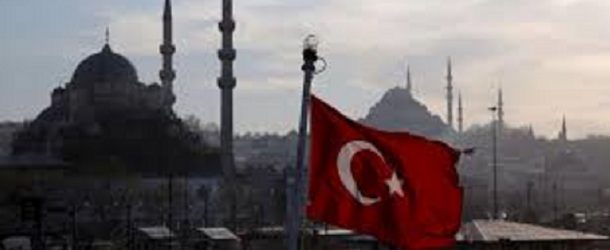The Istanbul elections saga is finished with the rather anticipated Ekrem İmamoğlu victory over AKP’s candidate, Binali Yildırım. This result adds another important parameter in Turkey’s hazy domestic politics, as President Erdoğan is called to handle a multilevel defeat, at a time where an emphatic victory would have been quite useful for his domestic, as well as his foreign politics, regardless of electoral fraud rumors that would have surged.
Maintaining the political myth of an undefeated AKP would have helped him sustain the party’s unity, as Turkey is going through an increasingly difficult period, which sees July dominated by the pressure over the decaying economy and the S-400 missiles issue. I still believe that the Turkish President will give in to Washington over the Russian missile system, but I do wonder whether he has a possible exit strategy, without getting accused from the opposition, which feels stronger after Sunday’s victory, for shamefully retreating, but also from the AKP’s part of the electorate, that in the past several months has been pounded by the President’s “we will not back down” propaganda. In politics, you reap what you sow and President Erdoğan is well aware of the dangers lurking under the risks he undertook in his domestic and foreign policies, however, arrogance diminishes one’s wisdom and blurs one’s judgement.
It is quite interesting that the international media (including Greece) have been dangerously maximizing Yıldırım’s defeat since yesterday. There is a growing tendency that Istanbul’s new mayor will spearhead the downfall of Erdoğan’s regime and within a short period of time (!)… There were even rumors of snap elections. Anything is possible but the current circumstances call for a calm, realistic assessment, instead of hasty and unfounded conclusions. Erdoğan and the AKP have suffered a serious blow, however, they are still the overall winners of Turkey’s municipal elections, he is still the President and he remains politically dominant. Most of the opposition parties voted for the CHP candidate, but that was not based on a political, ideological or any other identification between the Kemalist, the leftist and the Kurdish segments of the electorate that voted for the winner. Simply by reading the political groups’ titles, one comprehends the chaotic distance separating them. Erdoğan unwillingly bridged that but this shouldn’t be viewed as a continuous agreement, but as an one-off case to defeat the President’s invincibility.
The political groups within the Turkish society have developed serious differences, largely emanating from the country’s intense and violent political past. If one relies on the numerous analyses floating over the internet and the media, one might conclude that the AKP government has fallen, that the country is about to make a turn to a less autocratic regime, that the Kemalists, the left, the Kurds and the rest of the political groups will form a coalition government and several other ridiculous ideas. This, however, is far from true. The Turkish society has suffered greatly in its effort to mature politically and the bulk of the responsibility rests on the Kemalists and the nationalists. The Kurds have not suffered amnesia, but even they are divided between one substantial part that has been fighting the Turkish State and has suffered ethnic cleansing level crimes, while the other has been adamantly supporting Erdoğan for the past 17 years, even after his nationalist turn in 2015. Anyone thinking that the Turkish President will resign from power and will be replaced by an opposition coalition government, that the constitution will revert to something more democratic than the AKP’s autocratic monstrosity, stands far from reality.
The people of Istanbul succeeded in sending a message to the President, but the metropolitan municipality is not the country. Instead of adopting a maximalist approach to İmamoğlu’s victory, it is important to look into the potential political developments in the country, beyond the Istanbul election. Turkey is deeply divided, under strong economic, political and social pressure, with several open fronts in its foreign politics and the country is located at the inner core of international developments in the Middle East, right between Syria and Iran.
President Erdoğan needs to focus in two different areas. First, he needs to alleviate the consequences of the economic hardships of the society, thus save face towards his supporters. Secondly, he needs to find a realistic approach in his foreign policy; one that would have the least consequences and the Turkish people will find easy to accept. The opposition, on the other hand, is called to build a serious political proposal in order to challenge Erdoğan’s dominance by 2023.
Extending İmamoğlu’s victory through wishfull thinking, leads to hasty conclusions that are products of superficial political analysis of communicative purposes and irrelevant to the essence of the issue. Erdoğan needs to leave, but he will not leave merely for losing İstanbul.
Cover photo is taken from ahvalnews.com
Antonis DERIZIOTIS
National and Kapodistrian University of Athens, Department of Turkish and Modern Asian Studies



















































